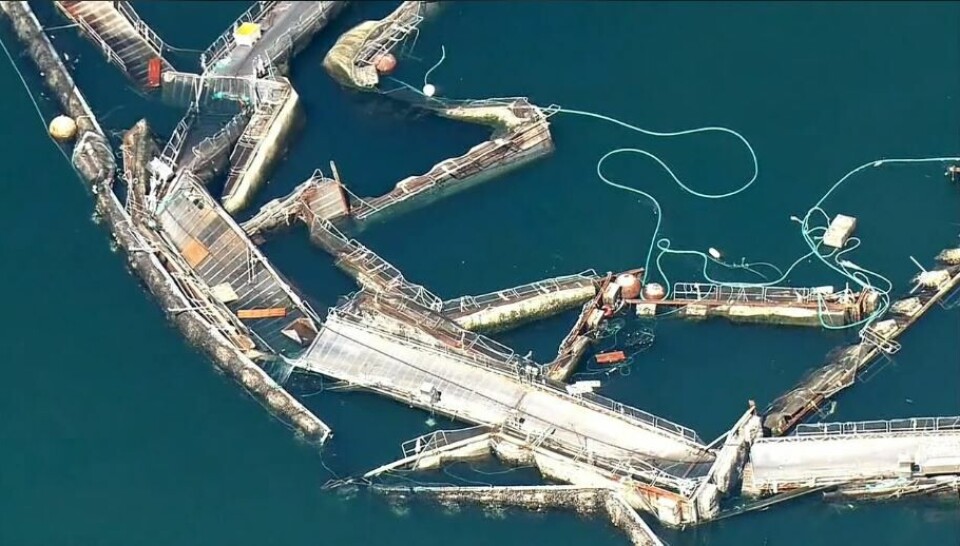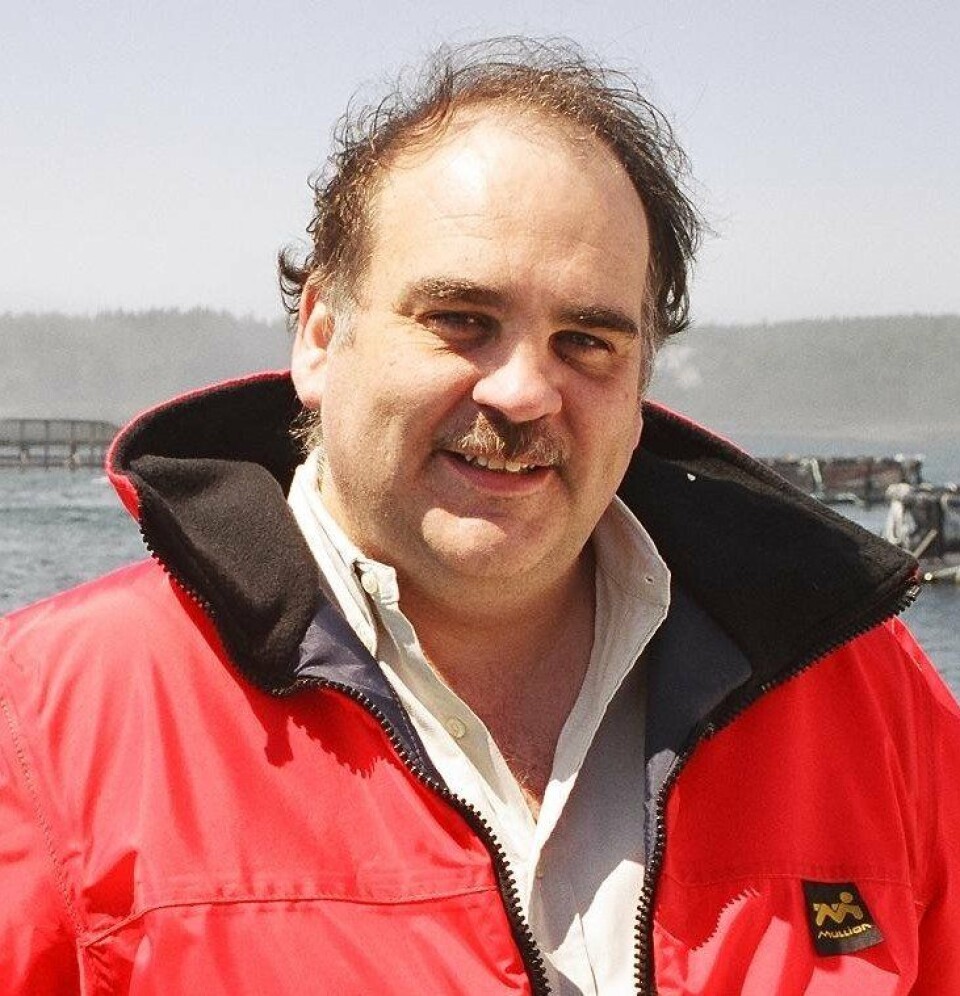
Cooke finishes part one of US farm escape clean-up
Cooke Aquaculture Pacific has concluded the first stage of its response to the collapse at its Cypress Island fish farm in Washington state in the north-west United States, an incident that resulted in the escape of more than 150,000 Atlantic salmon.
The Canadian-based company, which also farms salmon in eastern Canada, Chile, Scotland, and the US state of Maine, said in a statement that it had accounted for 200,927 of the 305,000 fish at the Cypress Island facility, including 145,851 fish recovered from the damaged structure, and 49,892 fish recovered through the company’s fish buy-back programme, with significant help from several Coast Salish tribal communities.
$1.5m offered to tribes
It said it has made financial offers to Coast Salish tribes in excess of $1.5 million for their recovery assistance efforts.

“We are tremendously grateful for the assistance from several Coast Salish tribes in the recovery of the escaped fish, especially given the deep concern that many tribal members have about potential impacts to native salmon runs in their ancestral waters,” said Cooke Aquaculture Pacific chief executive Glenn Cooke. “On the positive side, there is no evidence that any of the escaped fish from the Cypress Island incident are occupying native fish habitat or depleting native fish food supplies. We have inspected over 500 recovered fish stomachs, each of which was entirely empty of material.”
Understands concerns
Cooke said the escaped fish were generally unable to breed with native species as they were sexually immature, but added that the company understands concerns from the tribal communities about long-term impacts of the escaped fish in their tribal waters, and has offered to fund a study to evaluate any potential impacts that may arise.
“We want to work with the tribes on this,” said Cooke. “We have asked for the ongoing input and participation from several Coast Salish tribes in a scientific monitoring program that includes the selection of academic researchers, the sharing of real-time sampling and testing data, as well as consultation and coordination with their tribal fisheries experts.
"We have also offered to expand their expert capacity by funding some full-time positions within their tribal fisheries departments or at their tribal hatcheries.”
Prioritised for upgrade
The chief executive added: “We are continuing to work with all state, federal, and tribal agencies to ensure that this incident is not repeated. As a recent purchaser of this farm, we had already prioritised the facility for upgrade, and we have plans to spend significant amounts of capital over the next few years to upgrade all our facilities in Washington."
Cooke Aquaculture Pacific bought the Cypress Island facility, which was already stocked with fish, in summer of 2016. The company applied for a permit in February of 2017 to perform infrastructure upgrades after the fish were to be harvested in the autumn of 2017.
Smolt transfer go-ahead
Meanwhile, Cooke Aquaculture Pacific has been given permission by Washington Department of Fish and Wildlife (WDFW) to transfer around a million juvenile Atlantic salmon from a hatchery to existing cages in Puget Sound - the same large body of water where the Cypress Island facility is located.
Following the Cypress Island collapse, Washington state governor Jay Inslee directed that no permits be issued for new aquaculture net pens while the incident was being investigated. But current laws and administrative rules do not give state regulators the authority to deny Cooke's permit to move healthy fish into an existing net pen. Inslee's office asked Cooke to withdraw its permit application and expressed disappointment that the company chose to proceed while escaped Atlantic salmon remain unrecovered.
Cooke has pointed out that the fish being moved were hatched nearly a year ago and could not be held longer, because biologically they were ready for their transition to saltwater. Inslee had also asked if the fish could be moved elsewhere, but the company claimed the only space available was at its Clam Bay facility in Rich Passage, south Puget Sound. The move is expected to take place through the autumn.
Cooke operates net pens at eight locations in Puget Sound.























































